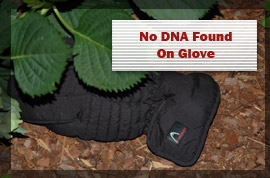Archival Notice
This is an archive page that is no longer being updated. It may contain outdated information and links may no longer function as originally intended.
Home | Glossary | Resources | Help | Contact Us | Course Map
The lack of DNA evidence creates reasonable doubt as to the defendant's guilt.
Due to the CSI effect, jurors expect DNA evidence to be presented. The defense may argue that the prosecution's failure to present DNA is lack of evidence which gives rise to reasonable doubt. As a rebuttal strategy, the prosecutor should educate the jury through expert testimony on the following:
- How DNA is transferred from a person's body
- What factors may prevent the transfer or detection of DNA
- What factors may destroy or eliminate the DNA
- Whether in this case it was appropriate to attempt to collect DNA for investigatory purposes
Additional Online Courses
- What Every First Responding Officer Should Know About DNA Evidence
- Collecting DNA Evidence at Property Crime Scenes
- DNA – A Prosecutor’s Practice Notebook
- Crime Scene and DNA Basics
- Laboratory Safety Programs
- DNA Amplification
- Population Genetics and Statistics
- Non-STR DNA Markers: SNPs, Y-STRs, LCN and mtDNA
- Firearms Examiner Training
- Forensic DNA Education for Law Enforcement Decisionmakers
- What Every Investigator and Evidence Technician Should Know About DNA Evidence
- Principles of Forensic DNA for Officers of the Court
- Law 101: Legal Guide for the Forensic Expert
- Laboratory Orientation and Testing of Body Fluids and Tissues
- DNA Extraction and Quantitation
- STR Data Analysis and Interpretation
- Communication Skills, Report Writing, and Courtroom Testimony
- Español for Law Enforcement
- Amplified DNA Product Separation for Forensic Analysts


